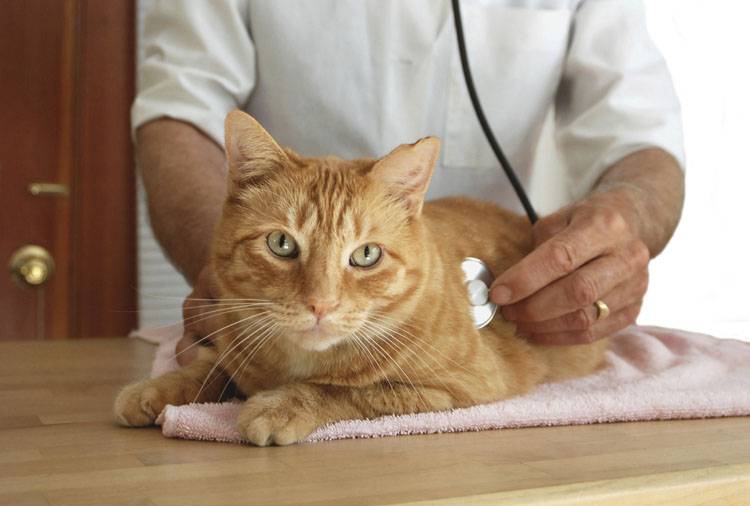Feline Fibrosarcoma
Diagnosis and Treatment
Cats can develop a vaccine-associated fibrosarcoma, which is a cancer of fibrous tissues. Past studies show an association of a soft tissue sarcoma at vaccine sites, such as rabies and feline leukemia (FeLV). The appearance of these fibrosarcomas arises between four weeks to 10 years post vaccine.
No single vaccine manufacturer or vaccine type can be associated with this type of cancer. Although the mechanism that causes the cancer to develop is not actually known, it is thought that the inflammatory reaction is why the tumor develops at a later date.
Diagnosing Fibrosarcoma
Vaccine-related fibrosarcoma in cats appear as a lump at the vaccine site. A computed tomography (CT) scan, also known as a cat scan or an MRI (magnetic resonance imaging), may be needed to evaluate the extent of the cancer to help determine proper treatment.
RELATED: Keep Your Cat Healthy With Visits to the Veterinarian
Fibrosarcoma Treatment
Surgery
Surgery is recommended to remove the tumor and the surrounding healthy tissues. There must be a wide margin (2 to 3 cm all around) plus underneath the tumor, as this is an aggressive cancer. If the healthy tissue is not removed, the incidence of recurrence is high and the cancer can reoccur within two to three months. Due to the fact that 50 percent of these tumors will reoccur, the first surgery is the best way of removing the entire tumor.
This is a major surgery and should be done by a board-certified surgeon. If the tumor is on a limb, the usual course of action is amputation. Although many cat owners are hesitant to have a three-legged pet, the animals do quite well with three legs.
Radiation Therapy
Keep in mind that although the surgery will remove the visible tumor, cancer cells can still be left behind. To kill the remaining cancer cells, radiation therapy may be used. The timing of the radiation therapy will depend upon the individual veterinarian, oncologist or surgeon, but it may be two weeks post surgery. Using chemotherapy on the vaccine-associated fibrosarcoma may or may not have any benefits for the patient, as it doesn’t appear to affect the cat’s overall survival. However, it may delay the time the tumor reoccurs.
As with all cancers, especially when cats are receiving radiation or chemotherapy, weight loss can occur. This is usually due to loss of appetite or general feeling of illness from the side effects of cancer treatment. It’s important to have sufficient nutritional support to reduce post-surgical complications and help the healing process.
RELATED: Cat Treats Still Have Calories
Prognosis
The prognosis for cats by surgery alone is poor while cats who have received surgery plus radiation or chemotherapy improve with a higher survival rate. If you notice a lump on or close to a site where a vaccine has been given, it’s important to speak to a veterinary assistant to schedule an appointment with a board-certified surgeon for a definite diagnosis.
Sources:
www.vetinfo.com
www.petcancer.org
You may also like: Strange Things Cats Eat





